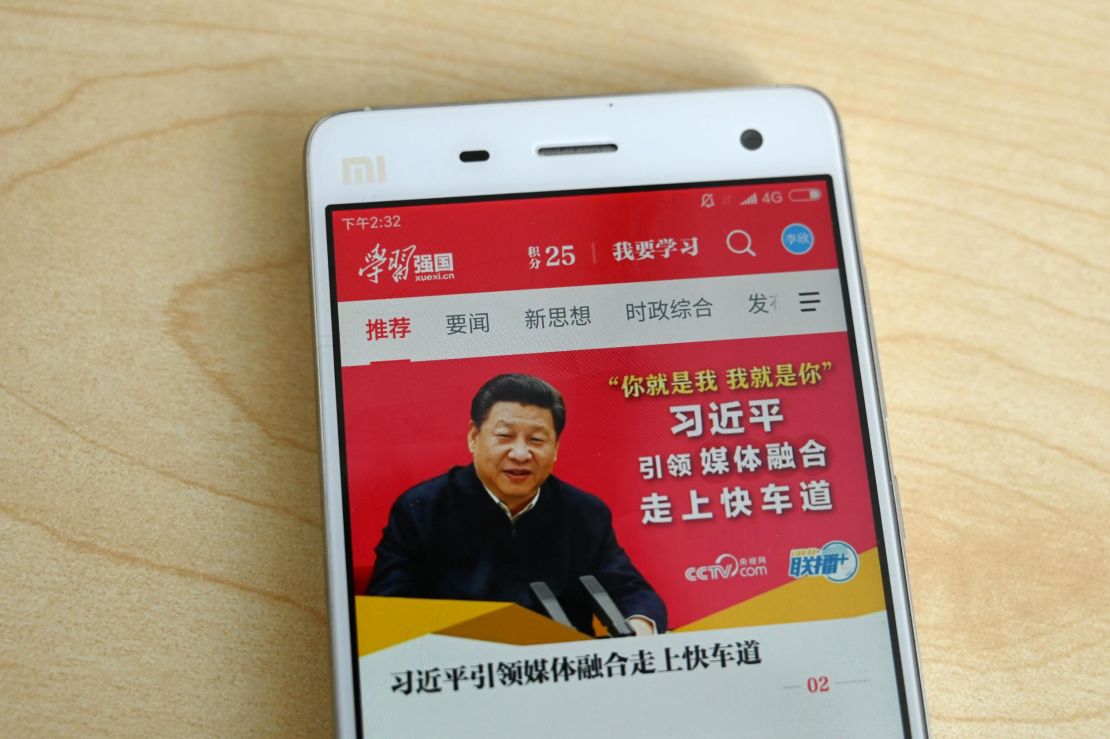Kids in the United States may be busy playing Fortnite and Apex Legends, but their Chinese counterparts are getting into socialist theory.
At least that’s the intention of a new app launched under the auspices of the Ministry of Education and the Communist Party’s Young Pioneers association.
According to the state-run Global Times, the new app and website is designed to help elementary and middle school-aged children “learn about new socialist thought and Chinese classics as part of a campaign to consolidate their belief in the party and inspire them to be reliable socialist successors.”
Lessons on the platform – run by the People’s Daily, the official mouthpiece of the Communist Party – include “I am Chinese,” which introduces children to the country’s “56 ethnic groups living in harmony,” and “Building a well-off society.”
Another lesson explains how “Grandpa Xi led us into the new era,” replete with illustrations of President Xi Jinping alongside smiling children.
Global Times said the app was launched as part of a campaign begun in January by the Ministry of Education to “allow students to better understand socialism in the new era through reading Xi Jinping Thought on Socialism with Chinese Characteristics for a New Era and classics President Xi has quoted in his speeches.”
Its launch follows the success of Study Powerful Country – Xuexi Qiangguo, also translated as Study the Great Nation – an app designed for adults to better understand Xi Jinping Thought, launched earlier this year.
That app – nicknamed Xi’s digital “little red book” after Chairman Mao’s famous tract – has shot up the app store charts, as all 90 million Communist Party members, as well as many employees of state-owned enterprises have been ordered to download it.
In a notice issued to party members in Hunan province, promotion of the app was described as a mandatory “ideological task” for cadres around the country.
Users can earn scores by reading articles about Xi and watching videos, something which has led many to attempt to hack the process, assuming that a high score could be beneficial down the line.
One tool, hosted on the code-sharing site Github, promises to help users “learn automatically” on the app. Others meanwhile, have turned to more old-fashioned approaches.
“We were told we had to score at least 30 points a day,” one official told the South China Morning Post. “I can make that score just by leaving the phone open with the articles and videos turned on, though I have to adjust the settings to avoid a timeout.”

According to David Bandurski, an expert on Chinese propaganda at the University of Hong Kong, the app is part of a new approach designed to ensure that the party’s message was getting through in the smartphone age.
“Once engagement with the app is enforced by administrative demands that it be installed and used, something that is already happening, the messages of the party become inescapable,” he wrote in February.
“Gone are the days when you can simply ignore that stack of party newspapers in the corner of the office, or switch off the party’s nightly newcast, ‘Xinwen Lianbo’.”
Both Study Powerful Country and the new app for kids build on a burgeoning cult of personality around Xi, which has seen him raised to a prominence and level of power no Chinese leader has held since Mao.
While at times state media has appeared to wish to roll back this propaganda push – dropping the use of Xi Dada, a nickname for the President – it has ramped back up in recent months, as China prepares to mark a number of key anniversaries this year, including the 70th anniversary of the founding of the People’s Republic.




